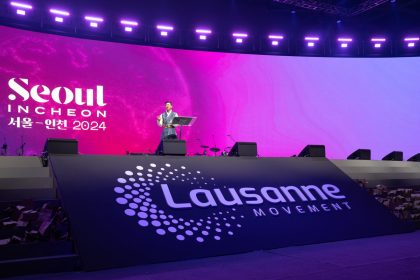Nigeria’s next phase of economic growth could be powered by fifth-generation (5G) technology and the Internet of Things (IoT), but only if the country addresses key barriers such as infrastructure gaps, affordability, and cybersecurity, according to IT and cybersecurity expert Olatunde Olasehan.
In an opinion article, Olasehan argues that while early 5G rollouts in Lagos and Abuja show promise — especially in areas like smart traffic management and industrial automation — the real impact lies in applying these technologies across sectors such as agriculture, healthcare, logistics, and education.
“With 5G and IoT, we can build smarter farms, deliver healthcare remotely, and create jobs across sectors,” Olasehan said. “But the digital divide remains a major concern.”
He noted that agriculture, which employs more than one-third of Nigerians, could benefit from IoT-powered sensors that monitor soil and climate conditions, optimize irrigation, and reduce crop losses. Similarly, 5G-enabled telemedicine and remote health monitoring devices could help close healthcare access gaps in Nigeria’s underserved rural regions.
Read also: Nigeria’s 5G subscriptions hit 4 million after two years
However, he warns that several obstacles threaten to limit adoption. Many rural areas still lack broadband infrastructure and steady electricity. The cost of 5G-enabled devices remains prohibitive for most Nigerians, and cybersecurity vulnerabilities in IoT devices pose serious threats.
“Each connected device is a new entry point for hackers,” Olasehan said, citing recent cyberattacks on industrial systems as a sign of growing digital risks. He calls for stronger regulatory frameworks to secure 5G networks and protect user data.
Olasehan also highlighted the opportunities in financial services and education. In fintech, 5G can enhance transaction speed and security, while in education, virtual classrooms powered by IoT can improve learning access in remote communities.
Still, the energy demands of 5G infrastructure raise concerns in a country already facing electricity shortages. Olasehan advocates for environmentally responsible strategies, such as network sharing and integrating renewable energy into network operations.
Read also: Why Nigeria’s telecom law needs a 5G/AI era upgrade
To fully harness the promise of 5G and IoT, he recommends that the Nigerian government and private sector collaborate on expanding digital infrastructure, offering device financing schemes, and launching digital literacy programs to boost adoption, especially in underserved areas.
“Technology alone isn’t the solution—it has to be inclusive, secure, and accessible,” he said.
Olasehan concludes that with the right mix of strategic investment, policy reform, and education, Nigeria can lead Africa’s digital transformation and unlock new economic opportunities.
“Africa is at a turning point,” he said. “With the right leadership, 5G and IoT can fuel our next big leap.”







